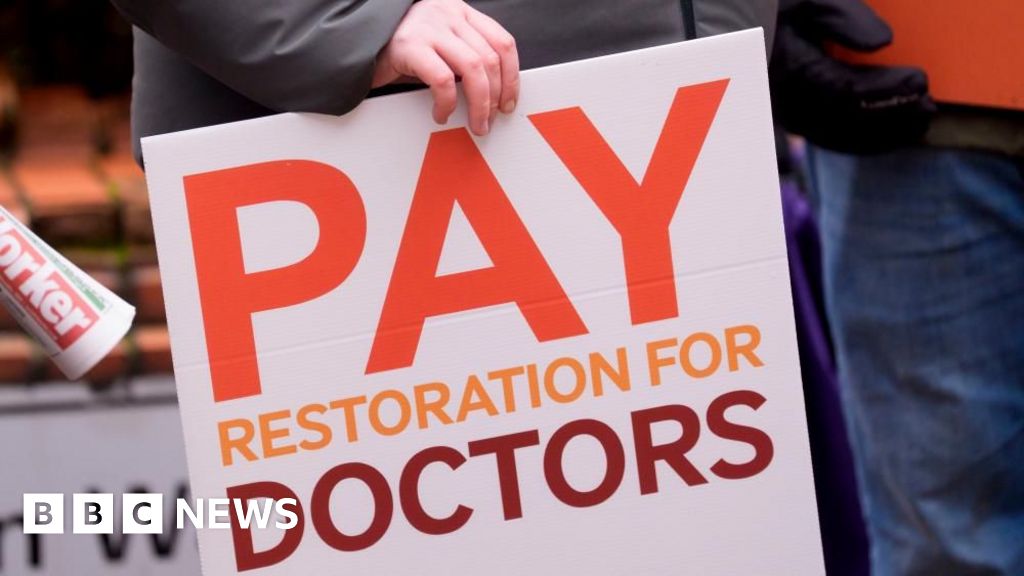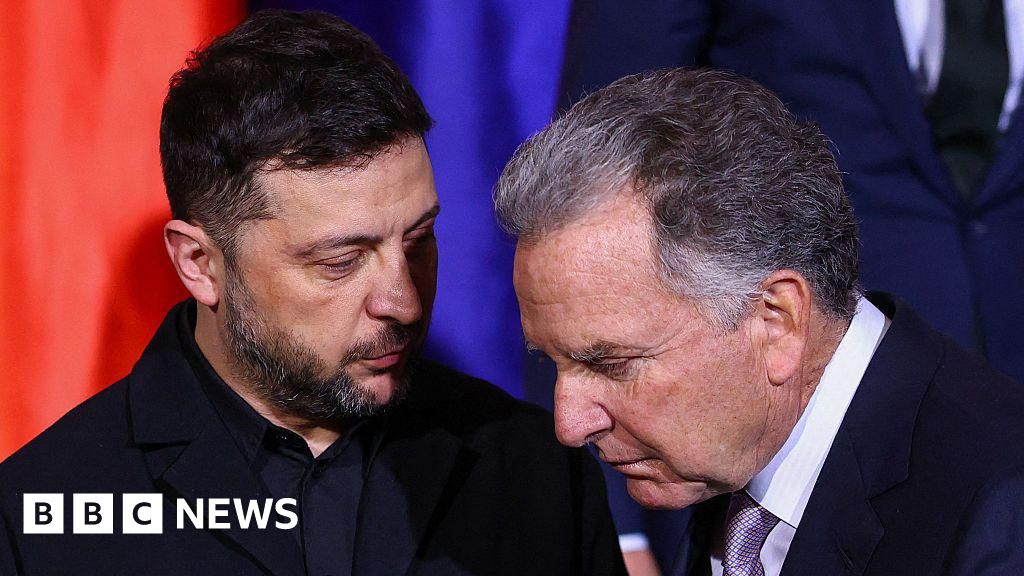Lucy Hooker
Business reporter
The government has insisted that American hormone-treated meat will not start to seep into the UK market, following the tariff deal agreed this week that boosts the trade in beef in both directions.
Some farmers and consumers have expressed fears that the deal could open the door to beef from cattle raised using hormones to boost their growth.
However, the government said certification procedures and border checks would ensure hormone-reared beef would not enter the UK.
The National Farmers' Union said it was asking the government to provide more details on how checks would work to ensure safety standards were maintained.
"The rules on food standards have not changed and they will not change as a result of the deal," said Chief Secretary to the Treasury Darren Jones.
He added that the agencies responsible for border safety checks would be able to test meat for traces of hormone with "consequences" for anyone breaking the law.
But Ian McCubbine, a beef farmer in Surrey, said he was concerned about the prospect of more American-grown beef coming into the UK.
"How do we know what they are putting in?" he said, speaking to the BBC's Today programme.
"We spent 50 years building an industry that is strong on environmental gain and animal welfare.
"The concern is that the US [beef imports] could be of lower quality."
The UK stopped allowing hormone-produced beef in 1989, when the practice was banned across the EU after it declared it unsafe.
But many American farmers use growth hormones as a standard part of their beef production. Adding growth hormones makes cows put on muscle mass, and so makes their beef cheaper.
The US and other countries that use the method, including Australia, say there is no added health-risk from hormone-treated beef.
However, a lot of consumers are wary of it, with some commenting online that they would look out for UK-produced beef in future.
As part of the tariff deal the UK has agreed to allow up to 13,000 metric tonnes of beef imports from the US tariff-free. That is the equivalent of one medium-sized steak per adult per year. Currently the US exports around 1,000 tonnes to the UK with a 20% tariff, the UK's Department for Environment and Rural Affairs (Defra) said.
In exchange, the UK will also be able to sell more beef to the US than it currently does, also up to 13,000 tonnes at a lower tariff than at present.
The deal also includes lower tariffs on UK-made cars destined for the US market and US ethanol exports to the UK.
Liz Webster, founder of the group Save British Farming, echoed Mr McCubbine's fears in a post on X.
"In exchange for tariff relief on luxury cars, we've opened our doors to US beef and ethanol. But as our border checks are barely functioning, how we'll enforce standards is anyone's guess," she wrote.
Some X users suggested shoppers should look out for the Red Tractor label, which means meat is produced in the UK.
"I'll be buying from my local butchers who knows the local farmers and which herds the beef comes from," said one.
US producers must have monitoring and certification procedures in place to prove that they are compliant with UK food standards to be allowed to export, Defra said.
Hormones are usually used to fatten cattle in the later stages of production, a Defra spokesperson said, and therefore traces would be identifiable through checks.
.png)
 7 months ago
23
7 months ago
23








 English (US) ·
English (US) ·